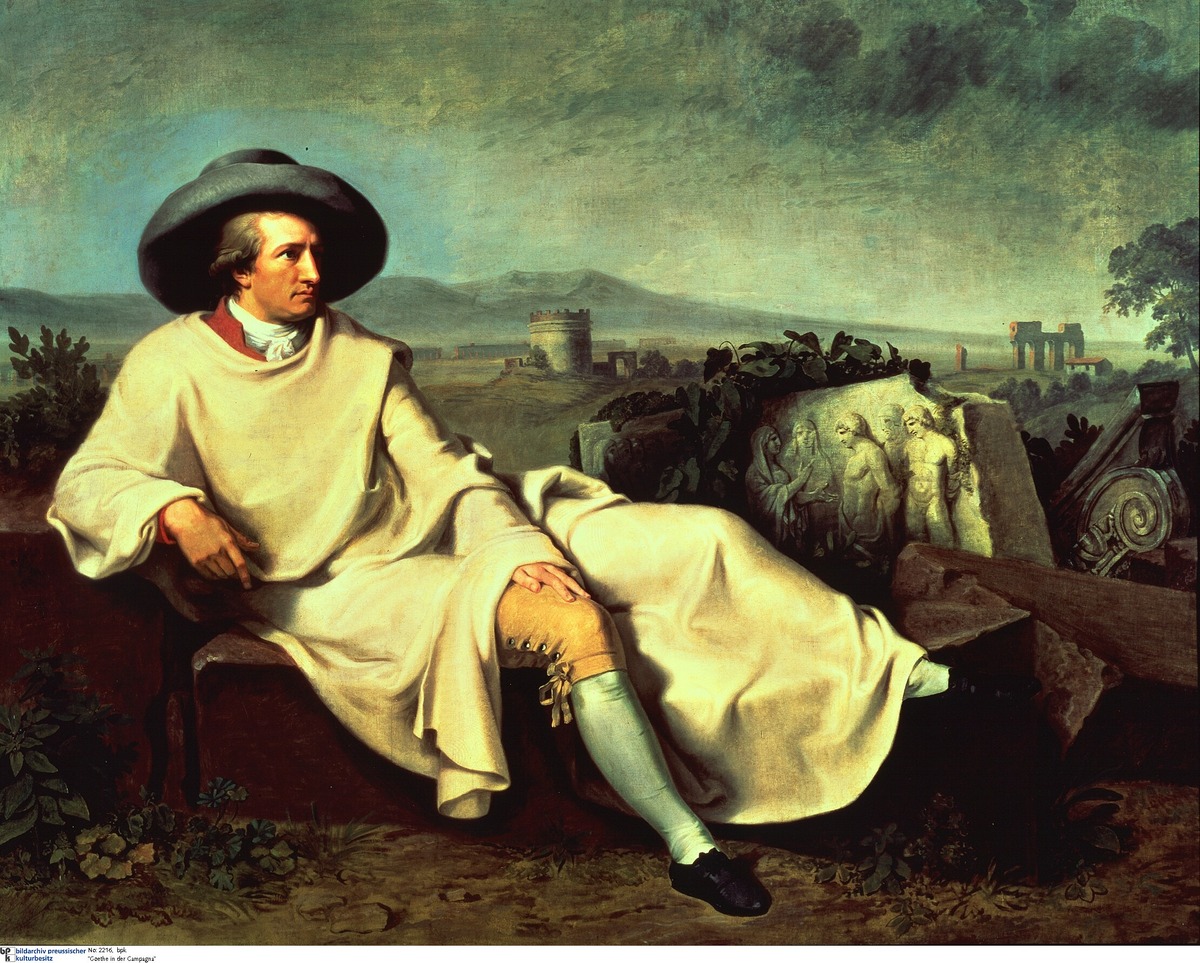Source

Source: bpk-Bildagentur, image number 70630800. For rights inquiries, please contact Art Resource at requests@artres.com (North America) or bpk-Bildagentur at kontakt@bpk-bildagentur.de (for all other countries).
From 1786 to 1788, Goethe traveled through Italy on a journey of self-discovery and to escape his duties as a high-ranking civil servant in Weimar, the capital of the Duchy of Saxe-Weimar. In the years following the publication of his celebrated Sorrows of Young Werther (1774), Goethe became a central figure in the literary and cultural movement known as “Weimar Classicism.” This famous portrait by Johann Heinrich Wilhelm Tischbein (1751-1829) shows Goethe amidst a landscape of Roman ruins. His surroundings highlight the perceived connection between German and classical Mediterranean culture. Oil on canvas, 1786-87.

Source: bpk-Bildagentur, image number 70630800. For rights inquiries, please contact Art Resource at requests@artres.com (North America) or bpk-Bildagentur at kontakt@bpk-bildagentur.de (for all other countries).
bpk / Städel Museum